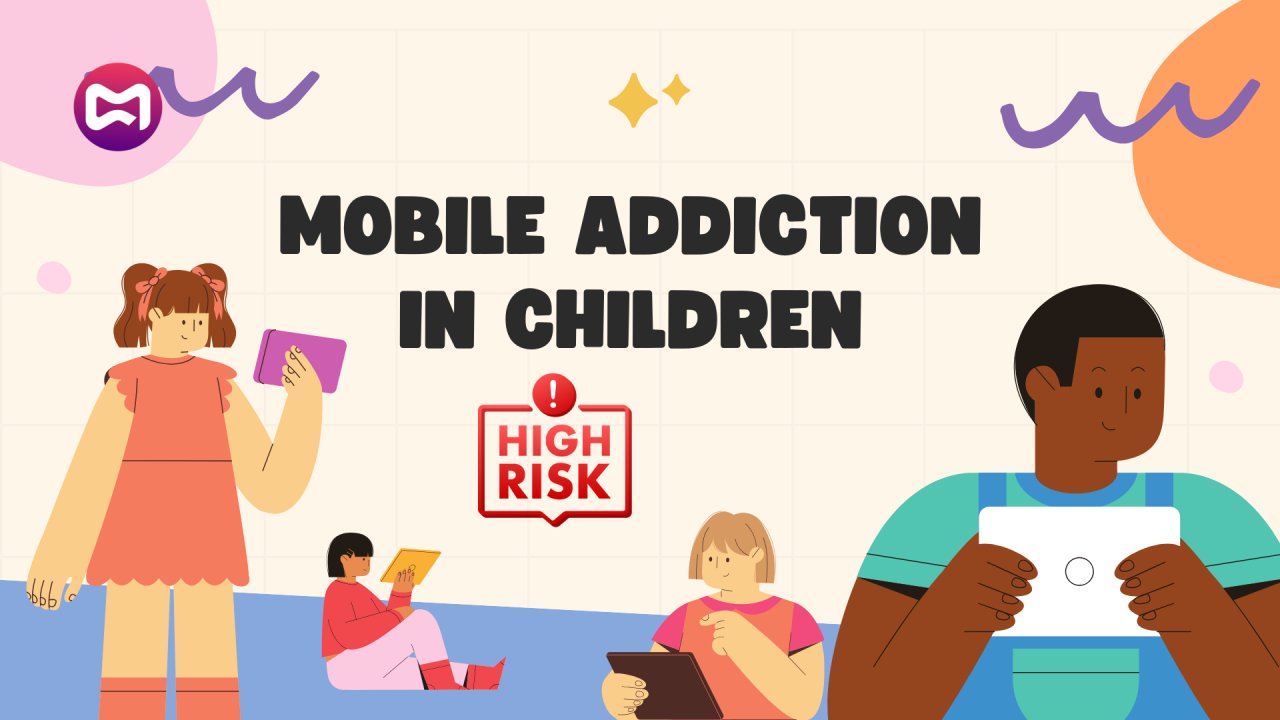Mobile Screen Addiction in Children – The Hidden Epidemic

Screen Addiction in Children – The Hidden Epidemic
In today’s world, the small mobile phone has become a powerful tool. But for millions of children, it is silently turning into a dangerous addiction. From the youngs refusing to eat without cartoons, to five-year-olds unable to speak properly, the effects of excessive screen time are alarming and now a days it just became the serious issue.
Then vs. Now
Just think of an Indian middle-class family in the 1990s. Parents and children would spend evenings together — reading, talking, helping with homework, and playing. There was real connection and interaction.
Now imagine the same family in 2025. The father scrolls through news on his phone, the mother is busy with an OTT show, the daughter checks Instagram stories, and the youngest child watches YouTube on a tablet. They sit in the same room but live in separate digital worlds. even being together, they are not.
This shift may look harmless, but the long-term consequences are severe.
What the Research Says
According to a 2024 survey in urban India covering 70,000 parents, more than 66% admitted their children are addicted to social media, OTT, or online games. Nearly 60% reported increased aggression and impatience in their kids due to screen use.
The World Health Organization recommends zero screen time for children under 2 years and only 1 hour daily for those aged 2–4. Yet, studies in India show the average daily screen time for under-5 children is more than double.
Major Health Impacts
-
Myopia (Weak Eyesight)
Children spending long hours on screens miss out on daylight and outdoor activity, leading to rising cases of myopia. Experts warn that by 2050, half of India’s children could need glasses. -
Sleep Disorders
Blue light from devices suppresses melatonin, the hormone responsible for sleep. Research shows every extra hour of screen time reduces a child’s sleep by 10 minutes. Poor sleep then affects learning, mood, and overall health. -
Obesity
With very less outdoor play and more indoor sitting, obesity risk has increased. Studies show children today spend less time outdoors than even prisoners in the jail. Eating while watching screens also leads to overeating and poor digestion. -
Developmental Delays and Virtual Autism
Children exposed to excessive screens show delayed speech, weaker motor skills, and difficulty in social interaction. In many cases, this resembles autism symptoms, known as “virtual autism.” The lack of real human interaction prevents children from learning language and emotions naturally. That's why the loosing sense of attend with others.
Stories That Shock
Mazor cases across India highlight the dangers, and we should keep a track for our children. Here are some real cases:
-
Aarav, 9 years old – addicted to his phone since infancy, later developed headaches, weak eyesight, and strange tantrums like a drug addict when the phone was taken away.
-
Priya’s daughter, 5 years old – stopped speaking after overexposure to cartoons, needed years of speech therapy to revive.
-
Rohan, 2 years old – developed ADHD symptoms due to long screen hours.
-
Kishan, 12 years old – became depressed and malnourished after gaming and social media addiction during the pandemic.
These are not isolated cases; they are becoming common and spreading like never before.
Why Children Get Hooked
Apps and videos like “Cocomelon” are scientifically designed with bright colors, fast cuts, and constant movement to capture a child’s attention towards sreen. This overstimulation reduces focus and makes real life seem boring in comparison. Over time, the brain craves more stimulation, just like with drugs or alcohol and this is an alarm.
The Way Forward
Parents often use screens as an easy escape — to feed children or to keep them occupied. But the price is too high.
Experts recommend for children:
- No screen time for children under 2 years.
- Strictly limited screen time for preschoolers.
- More outdoor play, family interaction, and storytelling.
- Mindful use of screen, only for educational purposes, and always under supervision.
Conclusion
Screen addiction is a modern parenting challenge and it is a growing epidemic. From weak eyes and obesity to speech delays and depression, the impact is very life-changing and reached to the alarming stage. Childhood should be full of play, conversation, and exploration — not endless hours in front of colorful glowing screens.
The responsibility lies with parents to create boundaries, healthy habits, and ensure children grow up connected to the real world, not trapped in the digital box.





